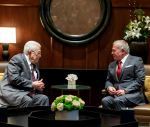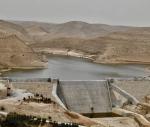You are here
Implications of the drone attack on Iran
Feb 05,2023 - Last updated at Feb 05,2023
Last week, Iran blamed Israel for a drone attack on a military factory near the central city of Isfahan, this was described by the Iranians as the latest episode in a long-running covert war. Regardless of who is behind the attack, it inaugurates a new phase where the long running proxy way is now being fought on Iranian territory. No longer is it limited to Syria, Iraq and Lebanon, these attacks are now happening directly in Iran.
This comes at a time when Iran is dealing with critical challenges. The first is the ongoing protests of its own citizens which have gone further than any other protest since those that led to the establishment of the Islamic Republic. These protests are making it increasingly difficult for the regime to manage the deteriorating socioeconomic, political and now security situations.
There is also a geopolitical challenge stemming from Iran’s involvement in the war in Ukraine. Their military support of Russia is increasingly putting Iran’s military capabilities, including its missile and drone programs on the radar of NATO, US and EU, which has given Israel the confidence to act on its concerns, as they have been trying to convince their allies to do for many years now.
On a regional level, the drastic deterioration of situation in Iraq, Syria and Lebanon, makes targeting Iran’ interests in these countries much easier. Combined with the difficult economic situation making basic goods scarcer and more expensive is making it increasingly difficult for Iran to continue supporting its friends in these countries.
Expanding the territories in which Iran is targeted appears to be at the top of the new Netanyahu government in Israel’s regional security agenda. For the first time in recent years, Netanyahu’s preferred approach to Iran is appealing, not just with his Gulf allies but also the US, who has changed its approach to Iran and its aggressive policies, including its ballistic and military capacities.
Israel may not need the support of other countries to target Iran, but Israel can leverage these changes to help legitimise its operations and court the backing of the US. This will give the Israeli government a stronger regional position and Netanyahu could use this to push to relaunch engagement with Arab countries to support him in pushing back against Iran.
Iran which is considered a master in this type of proxy confrontation, will try its best to counter this critical situation. However, options might be few when it comes to its influence in Gaza, the south of Lebanon and Syria. It is worth noting that Iran has always wished to target the internal Israeli scene and creating chaos to distract Israel with cleaning up its own house. One of the most effective proxy moves is in relation to Yemen and its implications on international sailing through the Straits of Hormuz. With this lever, Iran can interrupt international trade, energy and the security of Gulf countries, which will have a flow on effect on global energy markets.
Iran is engaged in a broader proxy confrontation which means that targeting them at home will have implications across the region. However, the main problem will be if in the deterioration of the internal situation security challenges might also increase, and confronting threats and armed groups on the Iranian borders becomes a new reality.













